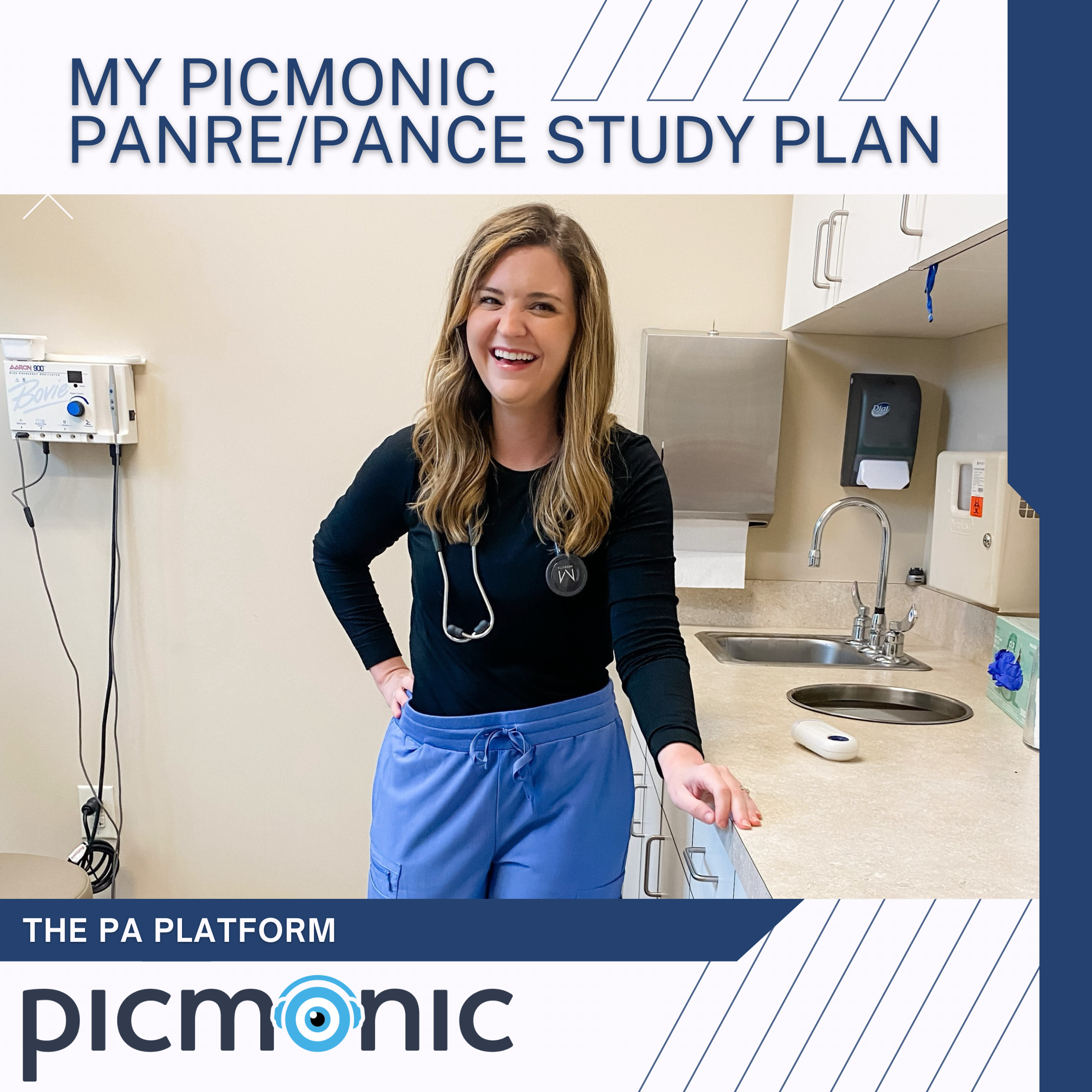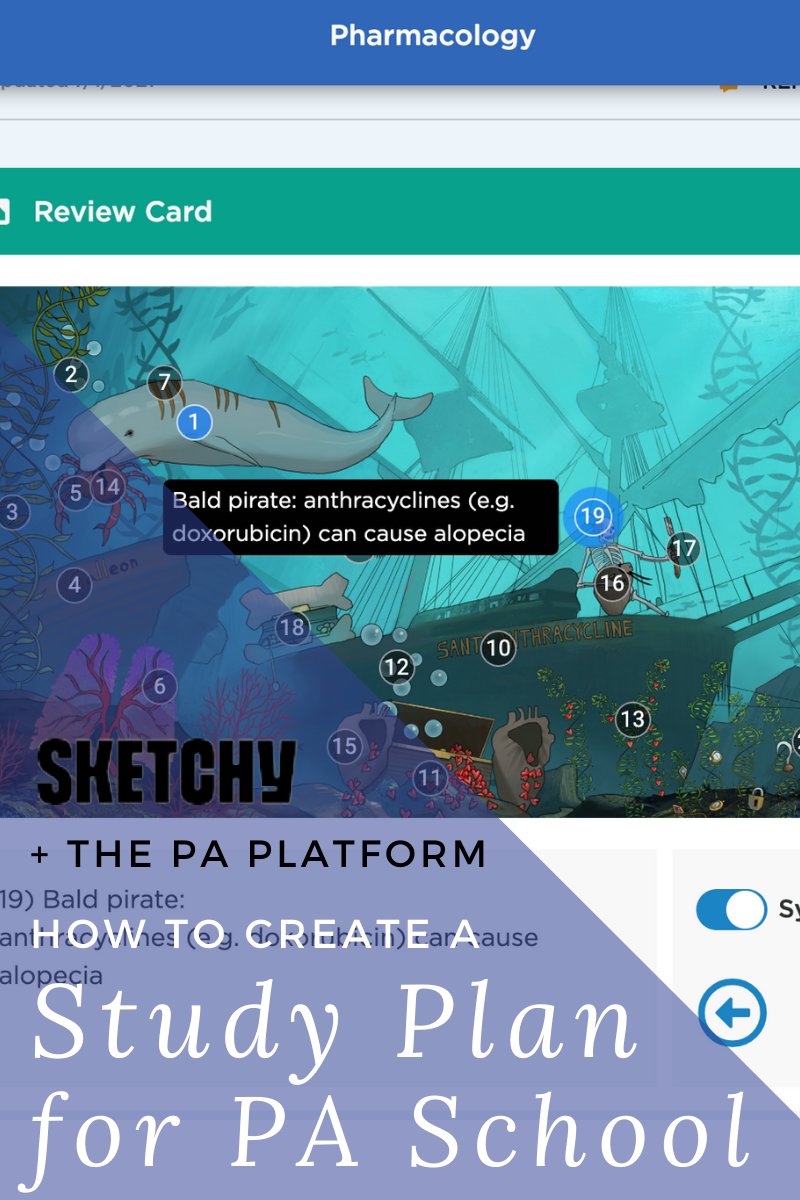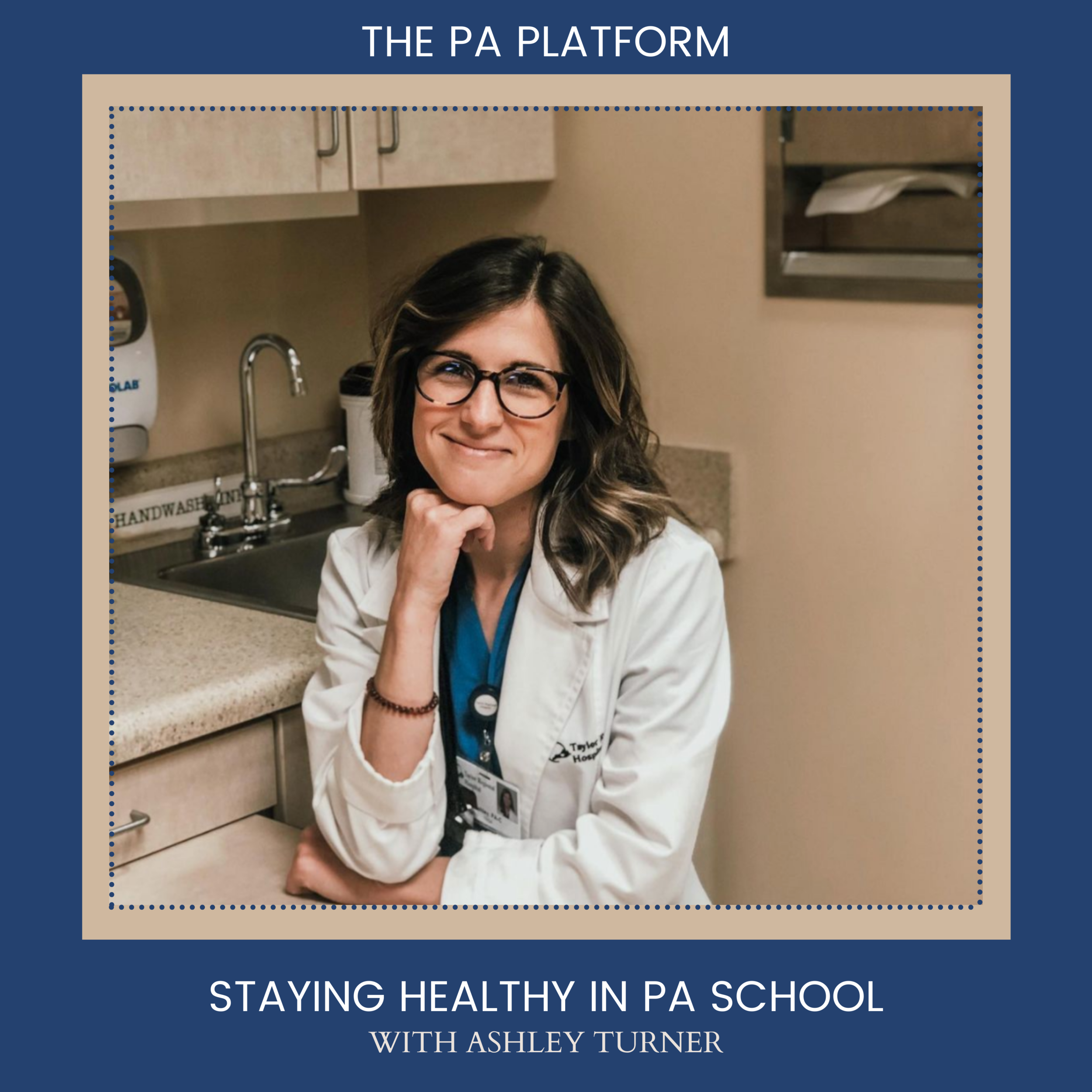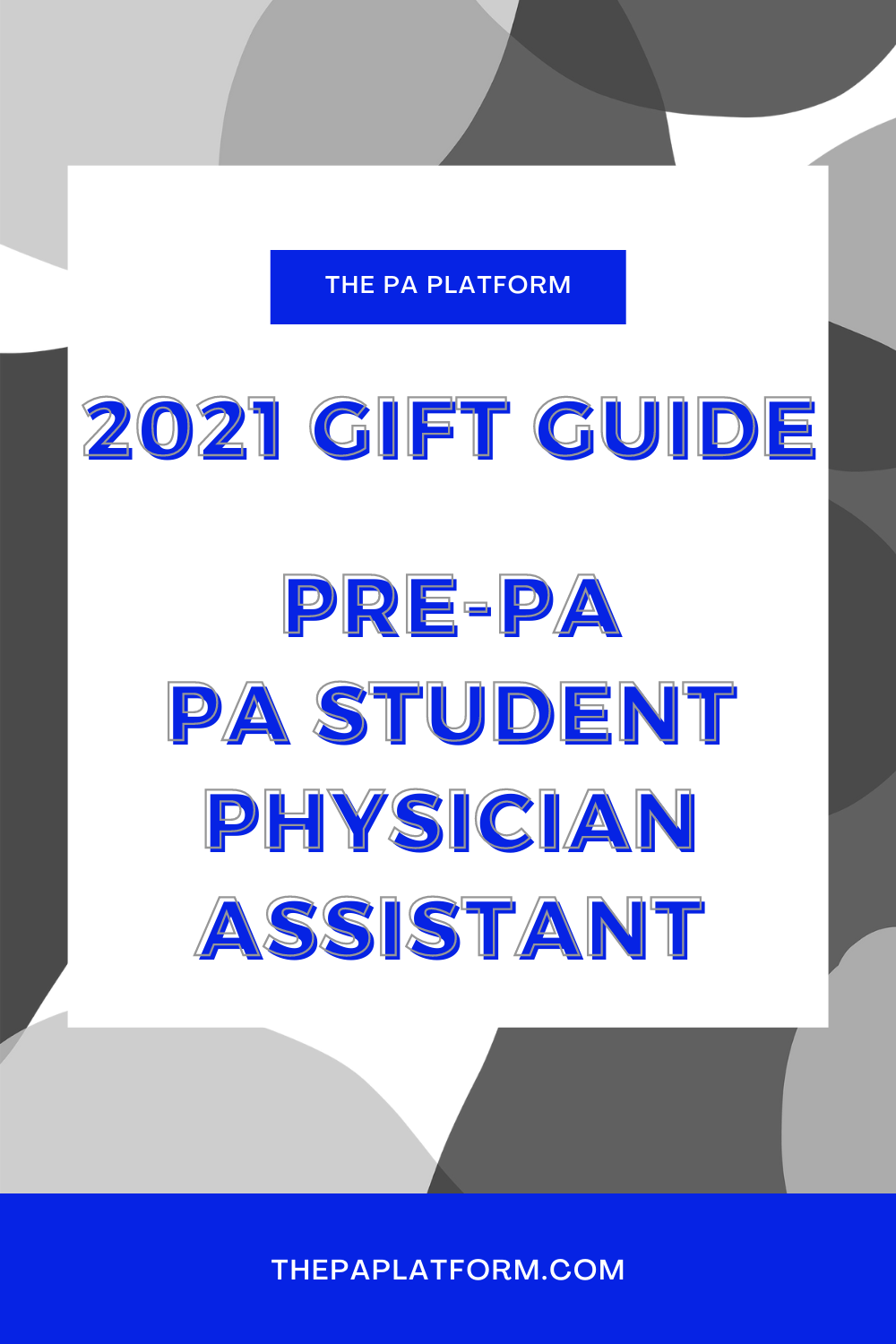Are ya'll enjoying our recent focus on finances? Do you know what "financial independence" is? Kat from @pathefiway is on The Pre-PA Club podcast today to tell us about her journey to establishing a financial education and helping other PAs meet their financial goals through her podcast - PA the FI Way. It was a really fun conversation, and I'm actually on her podcast as well talking about my student loans and creative outlet through The PA Platform.
Kat: So my name is Katarina, but I often go by Kat. I am a PA that lives in the upper Midwest. And I went to a PA school at Des Moines University.
Savanna: Awesome and you're practicing now?
Kat: Correct! Yep, I started in family medicine for about six and a half years. And I recently switched over to outpatient psychiatry back in January. I still do have a casual position with my previous employer as a walk-in/Urgent Care PA role too, so I like to keep that generalized medicine still going on too.
Savanna: Nice! Are you doing in-person psychiatry or mainly telemedicine?
Kat: When I first started, because of the COVID pandemic, it was mainly telemedicine, but just recently we switched back over to seeing people in person again too.
Savanna: Okay, interesting. Yeah, that's what a lot of my PA friends who work in Psych have been doing - a lot of telemedicine. It's a specialty that definitely translates well to that. I'm in dermatology, and it's a little hard to see things over Zoom, when trying to look at skin lesions. We've made it work, but it was a little difficult. So, let's take it back a little bit and what made you interested in becoming a PA?
Kat: So back when I was in high school, I felt as though I needed to figure out what to do with my life, as I'm sure many people felt the need to do back then. And I really enjoyed science, and I hadn't really thought about different types of careers in medicine. So back then in high school, a lot of people only think of doctors or nurses, although there are so many other types of careers out there in medicine as well. I highly encourage anybody interested in medicine to research about and consider other careers as well. But when I was in eighth grade, I tore my ACL my first and last time skiing, because I was not a good skier haha. And in the ER, the provider who saw me was a PA, and I didn't necessarily register it at the time as a teenager. But a few years later when I was thinking about what to do for school, my mom reminded me that that provider was a PA, and so we researched the profession together. I just really liked the fact that you get to have less student loan debt, and a little bit less time in school as well. I also really enjoyed the lateral mobility of the profession, obviously as I've utilized, so those were the factors that prompted me to pursue the PA profession.
Savanna: Nice! Yeah I feel like everyone comes to it in a different way but those personal medical experiences tend to be a common theme where you figure out, oh there are people who can take care of me who aren't necessarily doctors, which is nice and a good path to take. So I've actually never had a PA who works in psychiatry on the podcast surprisingly because I feel like there aren't that many of y'all. There's definitely a need and I know in the area I'm in in Georgia, we definitely need more psychiatry providers. What does a typical day at your job look like? What is your schedule like in that specialty?
Kat: Definitely, you're correct that there are definitely few PAs in psychiatry. When I was looking into switching into a specialty, the research I found at the time was that probably less than 1% of PAs work in psychiatry, so I thought that was very interesting. During a typical day right now, I will see either intake patients, or follow up patients. Intakes are new visits, and they are either self-referred, like some people just want to see a psychiatry provider for some reason, or family medicine may refer them, or a lot of times, they are follow-up from a recent inpatient hospitalization for psychiatric purposes, and we are seeing them once they've been stabilized in the hospital. As I mentioned too, it’s both currently a little bit of Telehealth visits, a little bit of in-person visits, so it's a little bit of both going on. We also manage their mental health medications, and we have to monitor labs with that. It's very weird, I'm sure you can relate as a derm PA, but it's very weird not to use the stethoscope anymore day-to-day. But that was something to get used to, but I still feel as though I'm helping people, and it's definitely a very interesting specialty for sure. You see a lot of different things, lots of different mental health illnesses, but it's very rewarding to try to help others feel better and try to help stabilize their mental health symptoms, so that they can improve.
Savanna: So are there any limitations in your specialty? Because I don't know about where you're at, but as far as with medications you're able to prescribe, just being in a specialty where you may be prescribing drugs that are on different schedules?
Kat: Sure, so that's a great question! At my company, they are very much trained on the job. So, the medical director is the supervising physician that we work with. In my state, we don't technically need the true supervising physician role anymore because of legislation changes. But every company keeps that role differently, right? So he's a psychiatrist, and he works with the PAs and is very hands on. So we have a weekly meeting with him where we ask all of our questions; we can send him messages all the time; we can go down the hall if he's in clinic. He oversees the PAs at other clinics as well which is really cool. So he's very hands on. We prescribe and manage all mental health meds. There's even one of the big gun antipsychotics called Clozaril (clozapine), you have to take some online training and then we manage that and prescribe that as well. A lot of injectable medications and controlled substances too, but I do appreciate that our company has a pretty strict controlled substance agreement policy. So we don't mix any controlled substances. Or if patients are using drugs like medical marijuana, depending on the situation, we often don't use controlled substances as well. So I do appreciate that support too.
Savanna: That's awesome. That sounds like a really great work environment and set up, which should be a goal for anyone who wants to be a PA. I want to pivot a little bit. So the reason we connected was through Instagram, and I started seeing your posts pop up on your account PA the FI Way, which we'll explain a little bit about. but so can you just explain what got you interested in financial topics and what inspired you to kind of create your account and podcast?
Kat: Yeah that's a great question. So, I guess for financial topics… I really wasn't that into finances. My husband used to manage all the bills, so I just thought that he manages the bills and I didn’t really have to learn much about finances. As a PA, I was just learning so much that I didn’t necessarily mind. I was definitely trying to pay off my student loans, but now aggressively. Unfortunately, I started off working with a financial advisor, who was not the best fit, because some things that he suggested aren't necessarily sound wisdom, so we got burned a little bit right out of PA school. How I got into the topic of financial independence was through travel rewards or travel hacking. We were on our way to a friend’s wedding, and one of my friend’s husbands asked, “hey do you like traveling? have you heard of travel hacking?” And he introduced me to the Choose FI Podcast. That is the podcast I started listening to, and that's how I got hooked on financial independence. I became kind of frustrated with our training - about how much we get into debt. We do earn a fair income out of PA school, but how do you balance that? So, it made me want to try to educate other current and future PAs out there about the concept of financial independence.
Savanna: I'd say in the last couple of years, that is something I learned about because they don't really teach us in school about debt or loans or investing or any of that. So it's a lot of self learning. But this concept of financial independence was new to me. Can you explain what that means on kind of a basic level for somebody who's never heard of it?
Kat: Sure, so financial independence is a very broad topic, but I will definitely do my best to try to explain it simply to those who are just kind of getting started. So financial independence, the abbreviation is FI (that's where PA the FI Way came from). And that's the first part of the acronym FIRE, or Financial Independence, Retire Early. Retire Early is actually optional, so once someone reaches the point of financial independence, they don't have to retire early. They certainly can continue working as a PA for many, many years to come if they would like to, but reaching that point provides many doors throughout your life, like you could consider cutting back on work or things like that. So, FI is the point at which a person (or a couple) reaches where they have invested savings equal to 25 times their expected annual expenses. So a lot of financial calculators look at your current income, but it's not really what you make that matters for retirement, it's what you expect to spend in retirement. For example, if a couple expects to spend $80,000 per year once they stop working, then they will need to have invested $2 million, or investments plus savings money. Otherwise, if they are able to live very frugally on only $40,000 a year, they would only need $1 million. Some people are really frugal and live on less than that as well. So financial independence is based on something called the Trinity Study, and what that study shows is that if you reach financial independence, you have a very high probability that you'll be able to last for 30 years with your finances. So if you are thinking about retiring really young, you probably should have more than 25 times your expected annual expenses saved up.
Savanna: Okay, that's what I was just thinking. So you're saying if I had $2 million in the bank, I could just retire - that doesn't seem like that would work hahaha. I mean investing is so complicated with compounding and all that. I'm sure there are lots of calculators online where people can plug stuff in and all of that. So when we talk about investing and saving and paying off debt and all of these things - when there are so many different techniques and terms, what stood out about this concept of financial independence? Do you plan on retiring early? When you found out about this, what steps did you decide, like okay I'm gonna do these things to make this a reality for myself.
Kat: So the two very condensed ways of achieving financial independence is trying to cut back on costs and save a lot, but then also try to invest throughout your career too. So you're trying to invest as much as possible for your future. In regards to whether I'll retire earlier or not, probably. I really don't want to work until I'm in my mid 60s or potentially even 70s. I'm not exactly sure when we will for sure retire, but again as I had previously mentioned, reaching financial independence or being close to it allows you the ability to really cut back on your work if you really want to. My husband and I don't have kiddos yet, but once we do, then that can help with a balance in our life at that point. Both my and my husband’s fathers passed away at relatively young ages. My dad was in his early 60s. and his dad was in his 50s. You hear all the time about how somebody reaches retirement age, and they’re so excited to retire and unfortunately something awful happens where a spouse passes away, or they get an illness, and they can’t do the things they planned for their retirement, whether that's traveling or other hobbies or activities. So that's why we're trying to pursue financial independence.
Savanna: Yeah, those are great, great reasons. And that's so true. I mean, there is so much variation in the PA profession between our specialties, jobs, locations, life, and debt and all that. Is this a concept that you feel like most PAs would be able to achieve and pursue, or do you think you need to be in a certain place already before you consider making actions towards setting yourself up for financial independence?
Kat: Sure, that's a great question. I think that every PA and their family can reach financial independence, and there's a few reasons why. One is that PAs do make a pretty decent and good salary. There are many school teachers that reach financial independence on a salary that's way less than us as PAs. Again, it’s about those expenses, so you don't have to cut back everything and live super frugally. But you need to find the balance of finding those things that you value in life. You don't have to be married to a high income earner as well. You can be the primary breadwinner, but if you have a PA salary, then you can certainly reach financial independence.
Savanna: Are there any resources that you use? I know there is Physician on FIRE, who talks about this who is a physician. There is also White Coat Investor; I feel like everybody knows about. What resources have you found to be the most helpful in just learning about finances?
Kat: Yeah! I absolutely love the White Coat Investor and Physician on FIRE; they're both excellent resources for those of us who practice in healthcare. As I mentioned before, Choose FI Podcast is great as well. And there's another PA on Instagram, Kristin Burton (@strivewithkristin). I recently interviewed her for my podcast as well. So she has tons of good resources too. There's so many good books too! The Simple Path to Wealth is an excellent book to start with, or Quit Like a Millionaire. It really depends upon what type of modality you want to learn from. There are podcasts, YouTube channels, books. I do have my podcast as well, PA the FI Way. I tried to really teach about these financial independence concepts, break it down in understandable pieces for peers and make it applicable to them as well.
Savanna: Nice, and I love that it’s specific to PAs! As a PA, you can understand the education and everything that goes into it, the job, and all those factors as well. Let’s talk about the different stages. We have pre-PA students, PA school students, new grad PAs, and other PAs. What are some things that people can start doing at these stages to kind of set themselves up for financial success later on?
Kat: Sure, yeah so this is a really deep question that you can go into many different branches, but I'm going to do my best to be concise here and try to give some actionable tips along each step here. In high school, try to keep your college costs low when planning for college. You can do that by taking AP or dual enrollment courses. I went to community college for my first two years of college too, so you can plan to apply to community college, and then start applying to tons of scholarships in high school. Then in college, you can also consider living at home that can keep your costs low, or you can become a resident assistant as well. You can use used textbooks and apply to more scholarships, and then try to obtain healthcare experience. You don't have to spend tons of money on your education to be able to start getting some of those healthcare experience hours. And then when you do apply to PA school, make sure that you are applying only to those programs that you have met all of those prereqs. Because as you know the cost of CASPA is pretty high. And if you aren't meeting all those prereq requirements, then it's probably not worth even applying to because you have to pay for every single PA program that you apply to. And then, in addition to applying for more scholarships, consider joining the military because you can get your debt paid back as a provider. The PA profession was founded in the military, so it's very fitting. In PA school, live below your means. So you're going to have your student loans that you're going to get, but it's really important to start budgeting. You need to start tracking, probably three to six months of every single dollar that you're spending. Keep your housing costs low, you don't need to spend money to buy fancy medical equipment. Just the simple medical equipment can do. Try to get rotations near your friends or family.
As a new grad, try to live like a PA student for two to five years. So don't let your fancy new income as a PA cause you to have lifestyle creep, meaning that the more money you make, the more money you're spending. Then really try to plan out how you're going to pay back those student loans, you can consider programs like Public Service Loan Forgiveness (PSLF). You can consider refinancing loans, certainly after the current COVID federal student loan pause is over though, and then try to start investing ASAP. Many jobs will have a match for their 401k or retirement plan. So try to start investing even if you are paying off your debt because time is your friend when it comes to compound interest. Also try to track your net worth. It’s hard to know where you're going to be going, which number is your financial independence number, and then how far along you are in reaching that number if you don't know what your current net worth is. There's a tool called Personal Capital (https://www.personalcapital.com) that I really like to use, and that allows you to put in different types of accounts to see where you are at that moment in time.
Savanna: Yeah I use that too. That’s a really helpful way to visualize everything and see where you are at. Those are great tips! As you were saying those, it’s funny and it sounds bad, but I was thinking about people who stand out at every level, either myself or someone I know. Like there was someone in my class who ate out every single meal, and someone else who bought a new car when they graduated. I clearly did not do everything perfectly either!
Kat: Exactly, exactly. I definitely did not do things right out of PA school either. I only learned about financial independence five years out of PA school, and I've been practicing for seven years now, so I definitely made all of those mistakes as well. You bring up a good point with food and transportation. Food, transportation and housing combined comprise 61% of American budgets. So if you can really focus on cutting back in those three areas, then you'll be able to save more money and invest for your future.
Savanna: What advice would you give to somebody who wants to learn about this but is overwhelmed? Do you have a good episode that would be a good place to start?
Kat: That's a great question Savanna! With my podcast, in those first couple of episodes, I talked about what the PA profession is if people aren't familiar with it, and then I do also talk about financial independence, and the different steps that I mentioned along the way there too. I also did recently create a free resource called PA the FI Way Beginners workbook that you can find on my website, http://pathefiway.com/, so you can you can sign up to get that resource to start. Otherwise, you can shoot me an email at Kat@pathefiway.com, and I'd be happy to send you a copy of that too.
Savanna: Perfect, yes, that's awesome, and you're on social media as well. I've definitely seen your posts popping up. I see yours and Kristin’s posts a lot because it comes up on my Instagram all the time, which is great. I need the reminders! Oh, and I’ll put all that information in the description, so everybody can find everything. I definitely appreciate all of your insights and information, and hopefully this will be encouraging to some people to at least take a look at their finances and kind of see what changes they can make.
Kat: Yeah, definitely. And I wanted to thank you so much Savanna for having me on. I’ve been following you for several years now. I think we graduated PA school right around the same time, so I think it's awesome what you've built over time since you've graduated from PA school! So thanks for all you do for current and future PAs too!





























